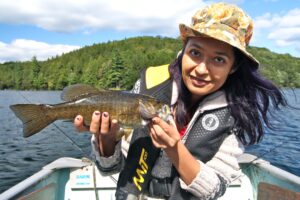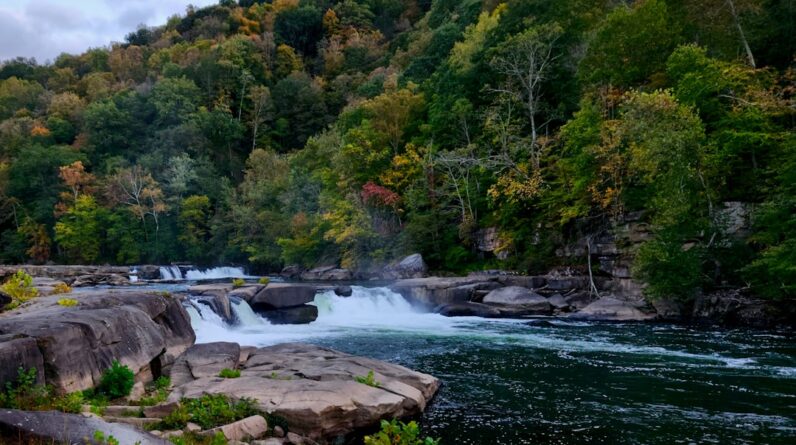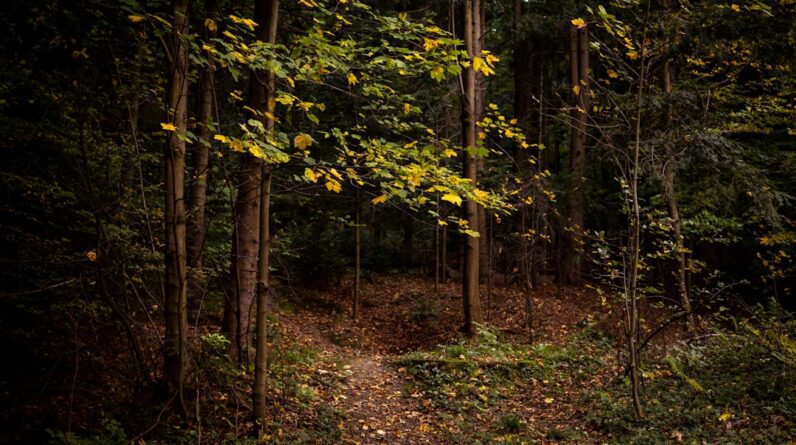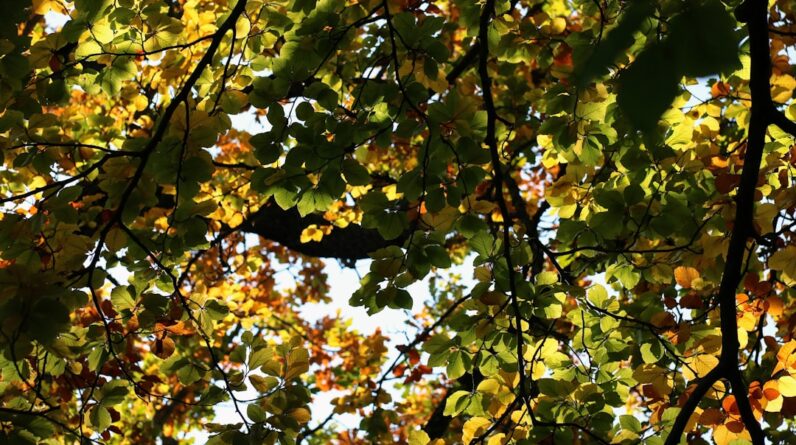
Ontario, Canada is a haven for fishing enthusiasts. With its vast network of lakes, rivers, and streams, it offers a diverse range of fishing opportunities for anglers of all skill levels. The history of fishing in Ontario dates back centuries, with Indigenous peoples relying on fish as a staple food source. Today, fishing in Ontario is not only a recreational activity but also an important industry that contributes to the province’s economy.
There are several types of fishing available in Ontario, including freshwater fishing, fly fishing, ice fishing, and even saltwater fishing in the Great Lakes. Freshwater fishing is the most popular, with anglers targeting a variety of species such as bass, walleye, pike, musky, and trout. Fly fishing is also gaining popularity, especially in Northern Ontario where pristine rivers and lakes offer the perfect setting for this angling technique. Ice fishing is a unique experience that allows anglers to fish during the winter months when lakes freeze over. And finally, the Great Lakes provide opportunities for both recreational and commercial fishing.
Key Takeaways
- Ontario offers a diverse fishing scene with lakes, rivers, and fly-in adventures.
- The top 10 fishing spots in Ontario include both popular and lesser-known locations.
- Northern Ontario’s fly-in fishing adventures offer a unique and secluded experience.
- Exploring Ontario’s Great Lakes on a fishing road trip is a must-do for any angler.
- Ontario is home to trophy-sized musky, and there are specific locations to find them.
- Bass fishing in Ontario is excellent, with smallmouth and largemouth options.
- Seasonal tips and tricks can help anglers plan the best time to fish in Ontario.
- Ontario’s fishing scene offers a range of techniques, from ice fishing to fly fishing.
- Conservation and sustainability efforts are in place to protect Ontario’s fish populations.
- Planning a dream fishing trip to Ontario is made easier with helpful tips and resources.
The Top 10 Fishing Spots in Ontario: From Lakes to Rivers
1. Lake Nipissing – Located in Northeastern Ontario, Lake Nipissing is known for its abundance of walleye and musky. Anglers can also catch bass, pike, and perch. The best time to fish here is during the summer months when the water is warmer.
2. Lake Simcoe – Just north of Toronto, Lake Simcoe is a popular destination for ice fishing during the winter months. Anglers can catch perch, whitefish, lake trout, and even trophy-sized musky.
3. French River – The French River is a historic waterway that offers excellent fishing opportunities for walleye, bass, pike, and musky. It is also known for its scenic beauty, making it a popular spot for canoeing and camping.
4. Lake of the Woods – Located in Northwestern Ontario, Lake of the Woods is a massive body of water that spans both Canada and the United States. It is known for its trophy-sized musky, as well as walleye, bass, and pike.
5. Niagara River – The Niagara River is famous for its world-class trout and salmon fishing. Anglers can target species such as rainbow trout, brown trout, lake trout, and chinook salmon. The best time to fish here is during the spring and fall when the fish are migrating.
6. St. Lawrence River – The St. Lawrence River offers excellent fishing for a variety of species, including bass, pike, musky, walleye, and perch. Anglers can also catch trophy-sized musky in this river.
7. Lake Erie – Lake Erie is one of the Great Lakes and offers fantastic fishing opportunities for walleye, bass, perch, and steelhead. Anglers can fish from shore or charter a boat for a more extensive fishing experience.
8. Lake Superior – Lake Superior is the largest of the Great Lakes and offers excellent fishing for lake trout, salmon, walleye, and whitefish. Anglers can fish from shore or charter a boat to explore the vastness of this lake.
9. Georgian Bay – Georgian Bay is part of Lake Huron and offers fantastic fishing for bass, pike, musky, and walleye. It is also known for its stunning scenery and is a popular destination for boating and camping.
10. Ottawa River – The Ottawa River is a major waterway that runs through Ontario and Quebec. It offers excellent fishing for species such as bass, pike, musky, walleye, and catfish. Anglers can fish from shore or charter a boat to explore different sections of the river.
Northern Ontario’s Best Kept Secret: Fly-In Fishing Adventures
Fly-in fishing is a unique and exciting way to experience the beauty of Northern Ontario’s wilderness while enjoying some of the best fishing in the province. Fly-in fishing involves flying into remote lakes and rivers that are inaccessible by road. These secluded locations offer pristine waters and untouched fish populations, making them ideal for anglers seeking a true wilderness experience.
Northern Ontario is the perfect destination for fly-in fishing due to its vast network of lakes and rivers. The region is home to countless remote fishing lodges and outfitters that specialize in fly-in trips. These lodges provide all the necessary equipment, including boats, fishing gear, and accommodations. They also offer experienced guides who can help anglers navigate the waters and find the best fishing spots.
Some of the top fly-in fishing lodges in Northern Ontario include Wilderness North, Anderson’s Lodge, and Loch Island Lodge. These lodges offer a range of packages to suit different budgets and preferences. Whether you’re a seasoned angler or a beginner, fly-in fishing in Northern Ontario is an experience you won’t soon forget.
The Ultimate Fishing Road Trip: Exploring Ontario’s Great Lakes
If you’re looking for an epic fishing adventure, a road trip along Ontario’s Great Lakes is a must-do. The Great Lakes – Superior, Huron, Michigan, Erie, and Ontario – offer some of the best freshwater fishing in the world. From trophy-sized salmon to massive musky, these lakes are home to a wide variety of fish species that will challenge even the most experienced anglers.
Each of the Great Lakes has its own unique fishing opportunities. Lake Superior is known for its trophy-sized lake trout and salmon, while Lake Huron offers excellent walleye and smallmouth bass fishing. Lake Michigan is famous for its salmon and steelhead runs, while Lake Erie is known for its world-class walleye and perch fishing. Lake Ontario offers a mix of salmon, trout, bass, and walleye fishing.
When planning a fishing road trip along the Great Lakes, it’s essential to research the best fishing spots and the best time of year to fish. Local bait shops, fishing forums, and guidebooks can provide valuable information on where to go and what techniques to use. It’s also important to check fishing regulations and obtain any necessary licenses or permits before hitting the road.
Fishing for Trophy-Sized Musky: Where to Find Them in Ontario
Musky fishing is a thrilling pursuit that attracts anglers from around the world. Ontario is known for its trophy-sized musky, with several lakes and rivers offering excellent opportunities to catch these elusive fish. Musky are known as the “fish of 10,000 casts” due to their elusive nature and challenging behavior.
Some of the best lakes and rivers to catch trophy-sized musky in Ontario include Lake of the Woods, Georgian Bay, St. Lawrence River, French River, and Eagle Lake. These bodies of water have a reputation for producing massive musky that can exceed 50 inches in length.
When targeting musky, it’s essential to use heavy-duty tackle and large lures that mimic their preferred prey. Musky are ambush predators that often hide in weed beds or near structure, so casting near these areas can increase your chances of success. It’s also important to be patient and persistent when musky fishing, as it can take many hours or even days to hook into one of these elusive giants.
Ontario’s Best Bass Fishing Destinations: Smallmouth and Largemouth

Bass fishing is incredibly popular in Ontario, with anglers targeting both smallmouth and largemouth bass. Smallmouth bass are known for their aggressive strikes and acrobatic fights, while largemouth bass are known for their size and strength.
Some of the best lakes and rivers to catch smallmouth bass in Ontario include Lake Simcoe, Lake Erie, Lake St. Clair, and the Thousand Islands region of the St. Lawrence River. These bodies of water offer excellent habitat for smallmouth bass, including rocky shorelines, weed beds, and drop-offs.
Largemouth bass can be found in many of the same lakes and rivers as smallmouth bass, but they also thrive in shallow, weedy areas such as back bays and marshes. Some top destinations for largemouth bass fishing in Ontario include Rice Lake, Lake Scugog, Lake Nipissing, and the Kawartha Lakes.
When targeting bass in Ontario, it’s important to use a variety of techniques and lures. Smallmouth bass are often caught using jerkbaits, crankbaits, and soft plastics, while largemouth bass are often caught using topwater lures, spinnerbaits, and jigs. It’s also important to pay attention to the time of year and the water temperature, as bass behavior can change depending on these factors.
The Best Time to Fish in Ontario: Seasonal Tips and Tricks
Ontario offers excellent fishing opportunities year-round, with each season presenting its own unique challenges and rewards. Understanding the different fishing seasons and the behavior of fish during each season can greatly increase your chances of success.
Spring is an excellent time to fish in Ontario as fish become more active after the winter months. As the water temperature rises, fish begin to move into shallower areas to spawn or feed. This is a great time to target species such as walleye, pike, bass, and trout. Using lures that mimic baitfish or insects can be highly effective during this time.
Summer is peak fishing season in Ontario, with warm water temperatures and abundant food sources. This is a great time to target species such as bass, pike, musky, and panfish. Fishing early in the morning or late in the evening can be more productive during the hot summer months when fish are less active during the day.
Fall is another excellent time to fish in Ontario, as fish begin to feed heavily in preparation for the winter months. This is a great time to target species such as salmon, trout, walleye, and musky. Using lures that mimic baitfish or imitate the natural colors of fall foliage can be highly effective during this time.
Winter is ice fishing season in Ontario, with anglers venturing out onto frozen lakes to catch species such as perch, walleye, pike, and trout. Ice fishing requires specialized equipment and techniques, including ice augers, ice shelters, and tip-ups. It’s important to check ice conditions and ensure safety when ice fishing.
From Ice Fishing to Fly Fishing: The Diversity of Ontario’s Fishing Scene
One of the great things about fishing in Ontario is the diversity of fishing opportunities available. Whether you prefer ice fishing on a frozen lake, fly fishing in a pristine river, or trolling for trophy-sized musky on a vast lake, Ontario has something for everyone.
Ice fishing is a unique experience that allows anglers to fish during the winter months when lakes freeze over. Anglers drill holes in the ice and drop lines with baited hooks or lures to catch fish such as perch, walleye, pike, and trout. Ice fishing requires specialized equipment such as ice augers, ice shelters, and tip-ups.
Fly fishing is a popular angling technique that involves using a lightweight fly rod and line to cast artificial flies onto the water’s surface. This method requires skill and finesse but can be highly rewarding. Northern Ontario is particularly well-suited for fly fishing due to its pristine rivers and lakes that are home to a variety of trout species.
Trolling is a popular technique used on the Great Lakes to catch species such as salmon, trout, walleye, and musky. Anglers use downriggers or planer boards to present lures or bait at different depths and distances from the boat. Trolling allows anglers to cover a large area of water and target fish that are actively feeding.
Whether you’re a seasoned angler looking to try a new fishing technique or a beginner looking to learn the ropes, Ontario offers a diverse range of fishing opportunities that are sure to satisfy any angler’s appetite.
Conservation and Sustainability: Protecting Ontario’s Fish Populations
Conservation and sustainability are crucial aspects of fishing in Ontario. The province has implemented various measures to protect fish populations and ensure their long-term viability.
Ontario’s Ministry of Natural Resources and Forestry (MNRF) is responsible for managing the province’s fish populations and enforcing fishing regulations. These regulations include catch limits, size limits, and seasonal closures to protect vulnerable species during their spawning periods.
Anglers can contribute to conservation efforts by practicing sustainable fishing techniques. This includes practicing catch-and-release whenever possible, using barbless hooks to minimize harm to fish, and handling fish with care to reduce stress and injury. It’s also important to follow all fishing regulations and obtain the necessary licenses or permits before fishing.
Conservation organizations such as Trout Unlimited Canada and Ducks Unlimited Canada also play a vital role in protecting Ontario’s fish populations. These organizations work to restore fish habitat, improve water quality, and advocate for sustainable fishing practices.
By practicing sustainable fishing and supporting conservation efforts, anglers can help ensure that future generations can enjoy the thrill of fishing in Ontario’s pristine waters.
Planning Your Dream Fishing Trip to Ontario: Tips and Resources
Planning a fishing trip to Ontario requires careful research and preparation. Here are some tips and resources to help you plan your dream fishing trip:
1. Research the best fishing spots: Use online resources, guidebooks, and local bait shops to research the best fishing spots in Ontario. Consider the species you want to target and the time of year you plan to visit.
2. Find a fishing lodge or outfitter: Ontario is home to numerous fishing lodges and outfitters that cater to anglers. These lodges provide accommodations, equipment, and experienced guides. Research different lodges and read reviews to find one that suits your needs and budget.
3. Check fishing regulations: Before fishing in Ontario, it’s important to familiarize yourself with the fishing regulations for the specific area you plan to visit. The MNRF website provides up-to-date information on fishing regulations and licensing requirements.
4. Obtain the necessary licenses or permits: In Ontario, anglers aged 18 and older are required to have a valid fishing license. Licenses can be purchased online or at authorized retailers.
5. Pack the right gear: Depending on the type of fishing you plan to do, you’ll need to pack the appropriate gear. This may include rods, reels, tackle, waders, and other accessories. It’s also important to pack appropriate clothing and footwear for the weather conditions.
6. Plan for transportation: If you’re driving to Ontario, plan your route and ensure your vehicle is in good condition for a long road trip. If you’re flying, research transportation options from the airport to your fishing destination.
7. Be prepared for the weather: Ontario’s weather can be unpredictable, so it’s important to pack clothing that is suitable for all types of weather. This includes bringing layers that can be easily added or removed, such as sweaters, jackets, and scarves. It’s also a good idea to pack a waterproof jacket or umbrella in case of rain. Additionally, be sure to pack appropriate footwear for walking in various conditions, such as sturdy shoes or boots for hiking or exploring outdoor areas. By being prepared for the weather, you can ensure that you stay comfortable and enjoy your time in Ontario regardless of the conditions.
If you’re an avid angler looking for more adventure, you won’t want to miss out on “The Angler’s Bucket List: Exceptional Fishing Spots Across Ontario.” But if you’re also interested in maintaining a healthy lifestyle, you might want to check out this related article on Travelogs: “Unlocking the Sunshine Vitamin: Why Women Need to Prioritize Vitamin D for Optimal Health.” Learn about the importance of vitamin D and how it can benefit your overall well-being. Read more








